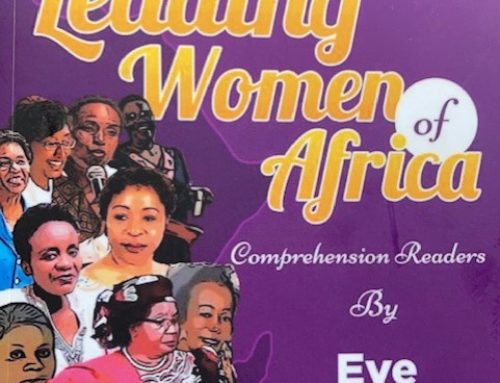For this final part of my series on lies I believed about sex I want to talk about the false expectation many people are given that because sex is intended for marriage, as soon as you get married you will be able to fully express yourself sexually without experiencing guilt or shame. Of the four things I touched on in my Relevant article, this was the one people seemed to resonate with the most.
Many of us who were raised in Christian communities heard some version of this line in an attempt to convince us that sex before marriage wasn’t worth the potential baggage. We were told stories of people who had sex before marriage and how this negatively affected their sexual relationship with their spouses. The message was clear. If you don’t wait, you are setting yourself up for heartache in your future sex life. If you wait, you will enter marriage guilt and shame-free and be able to enjoy sex the way God intended.
I’m not saying that this isn’t true to some extent. I’m incredibly grateful that my husband and I haven’t had any sexual experiences apart from one another. I think it’s a sweet and sacred part of our relationship and I love knowing that it is something we two have uniquely shared only with each other. But in many cases, our hyper-vigilant attitude towards pre-marital sex is very hard to shake once we’re married and it can take a great deal of time to get over the emotional barriers we put in place before marriage.
My struggle with guilt and shame wasn’t because I went into marriage believing that sex was dirty. I had been told since I was a teenager that sex was intended to be a beautiful thing. But when you spend so much time and energy trying to avoid it or being afraid of it, it’s hard not to let those experiences override simple statements like, “Sex is intended as a beautiful thing.”
If you think about it from a basic psychological standpoint, it makes no sense for us to expect people to be able to make such a huge change all in one instant. Many Christians have spent years – from the day they hit puberty until their wedding day- focusing their energy on keeping their sex drives in check. Then suddenly, in the space of just a few hours, they expect to be able to stop feeling like their sexuality is something they must carefully control and instead be able to express it freely. And not only that –but express it freely with another person.
Many of us have programmedourselves to feel guilt towards sexual feelings – this is how we keep ourselves in check throughout our dating relationships. But that “red light” feeling we train ourselves to obey doesn’t always go away just because we’ve spoken some vows and signed some papers. I have always enjoyed having sex with my husband, but it still took me several months to stop having that sick-to-my-stomach guilty feeling every time we were together.
As bizarre as it seems, I was actually embarrassed that I was no longer a virgin. Even though the whole reason for being a virgin was to enter marriage as a virgin, it had become such a crucial part of my identity that it was hard for me to give up. I had to tell myself over and over, “It’s ok. You aren’t supposed to be a virgin anymore.” But there was a part of me that was sure people were looking at me differently. If losing my virginity before marriage would have made me “like a piece of chewed up gum”, unsuitable for my future husband, how was losing my virginity to my husband supposed to feel different? Wasn’t I just my husband’s chewed up gum? (This is one of many disturbing and objectifying analogies I’ve heard before about why it’s important to save yourself for your spouse.)
Not everyone experiences these feelings,but for the many people who do, it is terribly isolating. Because, once again, we are experiencing something our churches and communities never acknowledged as a possibility. And we feel alone and broken and filled with a profound sense that this isn’t the way it’s meant to be.
Several people commented on my original article to say, “This is why you shouldn’t wait. Why would anyone want to live that way? It sounds like this totally ruined your ability to enjoy sex.”
I would say to those people that the problem isn’t with the waiting. Waiting, in and of itself doesn’t cause any of this. The problem is this huge gap between how we talk to teenagers and young adults about sex, purity, and abstinence and the expectations we put on marital sex. My husband’s and my difficulties in our sexual relationship stemmed largely from taking what we’d been taught about sex as teenagers and trying to apply it to a marriage.
The problem is two-fold. First, I think our churches need to re-examine how they communicate with teenagers and young adults about this (which I touched on in Part 2) and secondly, churches need to find a way to address the gap between “Don’t do that,” as a young single person and “Sex is the greatest” as a married person. In many churches, there is no mature discussion of sex directed at adults and no conversation whatsoever about how we move from the way we treat sex as singles to the way we’re meant to treat sex as married adults. By not addressing it, we act like this transition will happen naturally, leaving a lot of people isolated, hurt and confused when it doesn’t.
We need to start doing the hard work of addressing these issues instead of ignoring them.
[Lily Dunn is an ice cream connoisseur, a Disney fanatic, and a fellow raiSIN hater trying to live an authentic, grace-filled life. She lives and teaches with her husband in Daegu, South Korea and blogs at https://lilyellyn.wordpress.com. Follow her on Twitter @LilyEllyn]





[…] [For part IV looking at the Life of how Waiting for Marriage means Guilt-Free Sex, click here] […]
[…] Lies about Sex: Part IV – Waiting for Marriage means Guilt-free Sex […]
[…] time for the final part of my Lies About Sex series hosted by Brett Fish Anderson over at Irresistibly Fish. In this final installment I talk about the difficulty of trying to transition from a guilt-based […]
This is great. A conversation that needs to be had. I’m thankful for women brave enough to have these conversations and to share their experiences. I’m pumped about going back and reading the rest of this series!
Thankx for stopping by Suzanne and yes so great to have some people speaking so openly about these things [Take a look at some of the other stories under my Taboo Topics tab cos there is some truly eye-opening stuff] and please feel free to share these stories with your people…
I definitely will!
Thanks, Suzanne. Glad this was meaningful for you. Thanks for reading and for taking a minute to comment!
Thank you Lily for openning your heart and face the thruth! I´m going to get married next year, and I´m so glad that me and my boyfriend have purity and friendship in our relationship and I know God will honor us with a great marriage! But this sexual part is very scary at the same time, we have a lot of sexual appeal in the world and in the church you feel sometimes alone to share and listen about godness sex experiences in the marriage. God created us as sexual beings too, and His heart´s desire is that we live with fulness in all areas of our lives. But the problem is we will just try out this fulness in the light of the truth! This sexual areas need to be brought to the light of the truth in our churches! Thank you for this sharing, it will help us a lot in our next step…I hope I could do the same to young people here in Brasil!
Thank you for stopping by Barbara and all the best with your upcoming marriage. I think the excitement of sex as God intended is that it happens as part of a journey and is not itself a once off event – it is intimacy and discovery and confidence and serving your partner and all that which just grows and develops as you do as a couple – hope it is an exciting time ahead and great that you are looking out for the young people in your country… keep on, love brett fish